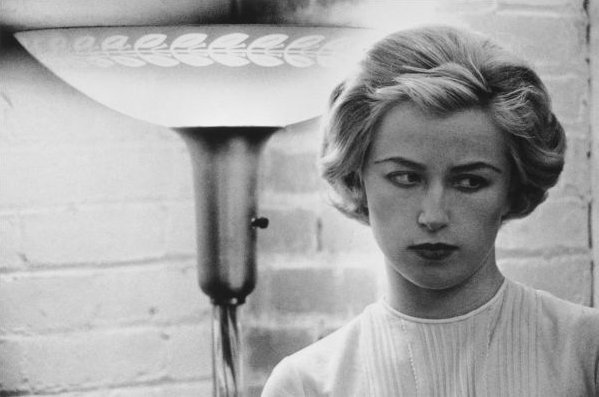Surreal versus Surrealism in Contemporary Art
dal 29/9/2011 al 10/12/2012
Segnalato da
Department of Communication Ivam
Matthew Barney
Ross Bleckner
John Bock
Monica Bonvicini
Maurizio Cattelan
Francesco Clemente
Roberto Cuoghi
Hans Op de Beeck
Nathalie Djurberg
Francesco Gennari
Dionisio Gonzalez
Timothy Greenfield-Sanders
Robert Gober
Douglas Gordon
Peter Halley
Carsten Holler
Shirazeh Houshiary
Michael Joo
Li Tianbing
Anish Kapoor
Oleg Kulik
Yue Minjun
Komar e Melamid
Liu Jianhua
Ma Liuming
Rudi Mantofani
Wangechi Mutu
Vik Muniz
Luigi Ontani
Tony Oursler
Javier Perez
Richard Prince
Neo Rauch
Marc Quinn
Shi Yong
Cindy Sherman
Kiki Smith
Inez Van Lamsweerde
Vinoodh Matadin
Ronald Ventura
Wang Guangyi
Wang Qingsong
Erwin Wurm
Zhang Xiaogang
Gianni Mercurio
Demetrio Paparoni
29/9/2011
Surreal versus Surrealism in Contemporary Art
IVAM Instituto Valenciano de Arte Moderno, Valencia
The exhibition focuses in particular on images showing unreal situations that at first glance are perceived as real and on true situations, on the contrary, that are perceived as a figment of one's imagination. It shows that while the surrealistic concepts that developed from the early 1920s are still in the works of several important artists of today, many others have developed an aesthetic concept influenced by the languages of the telematic tools for the masses. The show is divided into 4 chronological sections, each of which presents works from a different decade.

curated by Gianni Mercurio and Demetrio Paparoni
The birth of psychoanalysis gave rise to a vast movement of thought that constituted a true revolution in the ambit of 20th century modernism. Like the Bolshevik revolution, which through class struggle transformed the perception of the social role of the masses, the psychoanalytical revolution also had great influence on the culture and customs of the 20th century and continues to influence in this day and age. The collective awareness of the role played by the unconscious in the daily life of an individual and the influence exerted by Freud’s The Interpretation of Dreams was already in the first half of the 20th century the major reference point for the Surrealists, who in turn influenced the art of the decades that followed. The turning point occurred around the end of the 1970s, as a result of the initial effects of the social changes caused by the telematic revolution. Shortly thereafter, the Internet, satellite TV, Photoshop, and new scientific discoveries would change our perception of reality.
It is in this context that Postmodernism and a global vision of the world became established. It is in this context, which saw in art – but not only art – the relationships between individuals of different cultures and geographic areas undergo enormous change, that Surrealism and its ramifications gave way to the Surreal. That is if Surrealism offered images of oneiric visions, immediately perceived as improbable in the reality of everyday, the Surreal instead proposed real images that are hard to accept as true, to the point of being easily confused with oneiric or imaginary visions. Therefore, if Surrealism is the mirror of the individual’s upheavals of the unconscious, which are projected into reality as a work of art, the Surreal is the mirror of reality that is projected into the unconscious of the individual, causing upheavals. In this sense, Surreal versus Surrealism in Contemporary Art focuses in particular on images showing unreal situations that at first glance are perceived as real and on true situations, on the contrary, that are perceived as a figment of one’s imagination.
Surreal versus Surrealism in Contemporary Art, curated by Gianni Mercurio and Demetrio Paparoni for the IVAM in Valencia, addresses this important aspect of today’s art for the first time. The exhibition shows that while the surrealistic concepts that developed from the early 1920s are still in the works of several important artists of today, many others have developed an aesthetic concept influenced by the languages of the telematic tools for the masses.
The exhibition uses the term “Surreal” as opposed to “Surrealism” for the first time, thus giving rise to the formulation of an original critique.
The exhibition is divided into four chronological sections, each of which presents works from a different decade, from the 1980s to the present day and includes works by: Matthew Barney, Ross Bleckner, John Bock, Monica Bonvicini, Maurizio Cattelan, Francesco Clemente, Roberto Cuoghi, Hans Op de Beeck, Nathalie Djurberg, Francesco Gennari, Dionisio Gonzalez, Timothy Greenfield-Sanders, Robert Gober, Douglas Gordon, Peter Halley, Carsten Höller, Shirazeh Houshiary, Michael Joo, Li Tianbing, Anish Kapoor, Oleg Kulik, Yue Minjun, Komar e Melamid, Liu Jianhua, Ma Liuming, Rudi Mantofani, Wangechi Mutu, Vik Muniz, Luigi Ontani, Tony Oursler, Javier Perez, Richard Prince, Neo Rauch, Marc Quinn, Shi Yong, Cindy Sherman, Kiki Smith, Inez Van Lamsweerde / Vinoodh Matadin, Ronald Ventura, Wang Guangyi, Wang Qingsong, Erwin Wurm, Zhang Xiaogang.
Image: Cindy Sherman, Untitled, Film Still n. 53, 1980
Press contact:
Ivam Department of Communication (+34) 96 3867679 or send an e-mail to comunicacion@ivam.es
IVAM, Institut Valencià d’Art Modern
Calle de Guillem de Castro, 118 - 46003 Valencia
SUMMER OPENING HOURS 2011 AUGUST & SEPTEMBER
Monday and Tuesday from 10.00 to 17.00h.
Wednesday to Sunday and holidays from 10.00 to 20.00h.
Prices
General entrance: 2 euro
Students / Student card: 1 euro
Retired people: Free entrance
Civic and cultural groups (advanced booking): Free entrance
Other groups: 1,50 euro per person



